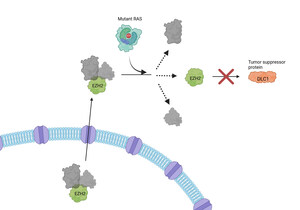By the National Cancer Institute
Editor's Note: The following article is part of the monthly Lifelines education and awareness print series that the National Cancer Institute provides to African American news and information outlets
BETHESDA, Md., Dec. 27, 2012 /PRNewswire-USNewswire/ -- Childhood cancer is rare—children with cancer account for less than 1 percent of all new cancer cases in the United States. But did you know that cancer is the second leading cause of death (after accidents) among children ages 1 to 14? It is estimated that in 2012 in the United States, more than 12,000 children (ages 0 to 14) will be diagnosed with cancer and more than 1,300 will die from it.
(Logo: http://photos.prnewswire.com/prnh/20111018/DC89117LOGO)
But there is good news, too. Over the past 20 years, childhood cancer deaths overall have dropped, and many more children are surviving a cancer diagnosis. For example, only 58 percent of children ages 0 to 14 diagnosed in 1975–1977 lived at least 5 years after diagnosis, whereas it is estimated that more than 80 percent of those diagnosed today will make it to the 5-year mark. This improvement is due to remarkable advances in treatment and to the high participation of children with cancer in clinical trials.
Although African American children are less likely than white children to develop cancer, their 5-year survival rate is poorer, according to the National Cancer Institute's (NCI) Surveillance, Epidemiology, and End Results Program.
The most common types of childhood cancer are leukemias (blood cell cancers) and cancers of the brain and central nervous system. The causes of childhood cancers are largely unknown, and researchers are trying to learn about possible risk factors. You can learn more about childhood cancers at NCI's website. Just go to http://www.cancer.gov/cancertopics/types/childhoodcancers.
Despite the improvements in outcomes overall, some types of childhood cancer remain very difficult to treat and have low cure rates. NCI continues to try to find more effective treatments for all childhood cancers through research and clinical trials. If you have a child with cancer, have you thought about enrolling your child in a clinical trial? It is important to take the time to learn about cancer clinical trials and what benefits they may offer, even if you ultimately decide that a trial is not for your child. You can learn more about clinical trials at NCI's website. Just go to http://cancer.gov/clinicaltrials/learningabout.
Remember, when it comes to your child's health, knowing the facts and the options about treatment are critical. In the fight against cancer, clinical trials can offer hope and promise, but the only way to know whether a clinical trial is right for your child is to educate yourself and get the facts.
For more information about cancer, please visit the NCI web site at www.cancer.gov/espanol (or m.cancer.gov from your mobile device) or call NCI's Cancer Information Service at 1-800-4-CANCER (1-800-422-6237). More articles and videos in the culturally relevant Lifelines series are available at www.cancer.gov/lifelines.
SOURCE National Cancer Institute
WANT YOUR COMPANY'S NEWS FEATURED ON PRNEWSWIRE.COM?
Newsrooms &
Influencers
Digital Media
Outlets
Journalists
Opted In






Share this article